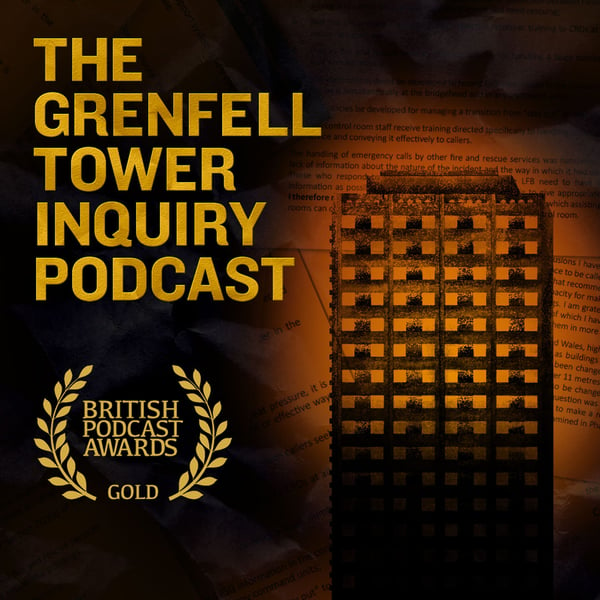143 The Building Research Establishment
The Grenfell Tower Inquiry Podcast
BBC
4.8 • 627 Ratings
🗓️ 26 February 2021
⏱️ 42 minutes
🧾️ Download transcript
Summary
A manager at the BRE denied deliberately concealing test evidence. Phil Clark managed the burn hall where fire safety tests were carried out. He told the inquiry he failed to notice that a test rig for an insulation product used on Grenfell Tower had been altered to increase its chances of passing. Non-combustible magnesium oxide boards had been added to the test but were not mentioned in the BRE’s test report.
Claude Schmidt, the President of Arconic Architectural Products, continued his evidence and accepted the use of the cladding panels installed on Grenfell Tower was an ‘accident waiting to happen’.
Presenter / Producer: Kate Lamble Producer: Sharon Hemans Researcher: May Cameron Studio Mix: Gareth Jones
Transcript
Click on a timestamp to play from that location
| 0:00.0 | BBC Sounds, Music, Radio, podcasts. |
| 0:05.0 | Hello and welcome to the Grenfell Tower Inquiry podcast with me, Kate Lamble. |
| 0:09.8 | This week, a senior archonic manager accepted the use of the cladding panels installed on Grenfell Tower was an accident waiting to happen. |
| 0:18.4 | We'll get to that evidence later in the episode, but I want to start with the |
| 0:22.2 | building research establishment or BRE. In the context of Grenfell, the BRE hasn't necessarily |
| 0:28.4 | been in the headlines, but it's a really important part of the construction industry. So before we |
| 0:34.2 | go into what the BRE said, I want to take a second to explain what it is and what it does. |
| 0:40.1 | Pete Apps is the deputy editor of Inside Housing magazine. |
| 0:43.8 | So the building research establishment has quite a long history. |
| 0:47.4 | They go right back to the start of the 20th century when they became our national facility for researching building science. |
| 0:57.4 | And throughout the 20th century, they've done research for government, which has underpinned |
| 1:03.2 | policy decisions which government has made about how to set building regulations and fire |
| 1:08.1 | standards and that sort of thing. |
| 1:10.3 | What happened in 1997 was that |
| 1:13.8 | they were privatised. They stopped being part of a state and became an independent charitable trust. |
| 1:19.7 | And what that meant was they now had to develop an income stream for themselves as a private |
| 1:25.3 | organisation rather than just getting work from government. |
| 1:29.3 | So they're looking for a private income stream. Where did they find that? |
| 1:33.8 | They've taken their income from several places. One is to win government contracts for research. |
| 1:38.9 | And one of the reasons why the BRE has seen is so important is because even now as a private |
| 1:43.8 | organisation, the work that |
| 1:46.1 | they've done has had a big impact on the policy for the built environment. But the thing that we're |
... |
Please login to see the full transcript.
Disclaimer: The podcast and artwork embedded on this page are from BBC, and are the property of its owner and not affiliated with or endorsed by Tapesearch.
Generated transcripts are the property of BBC and are distributed freely under the Fair Use doctrine. Transcripts generated by Tapesearch are not guaranteed to be accurate.
Copyright © Tapesearch 2025.

